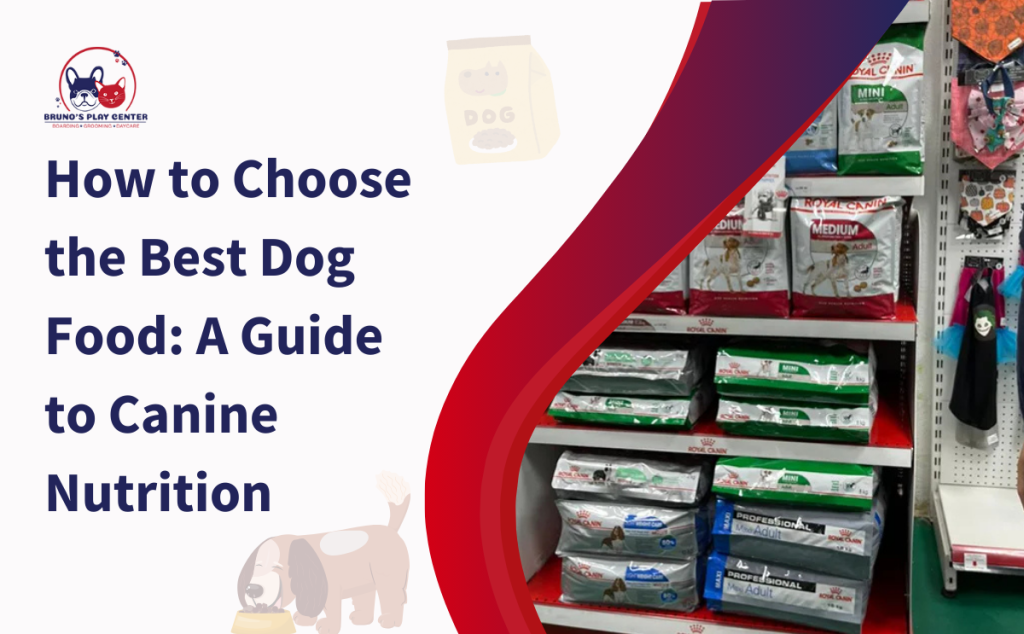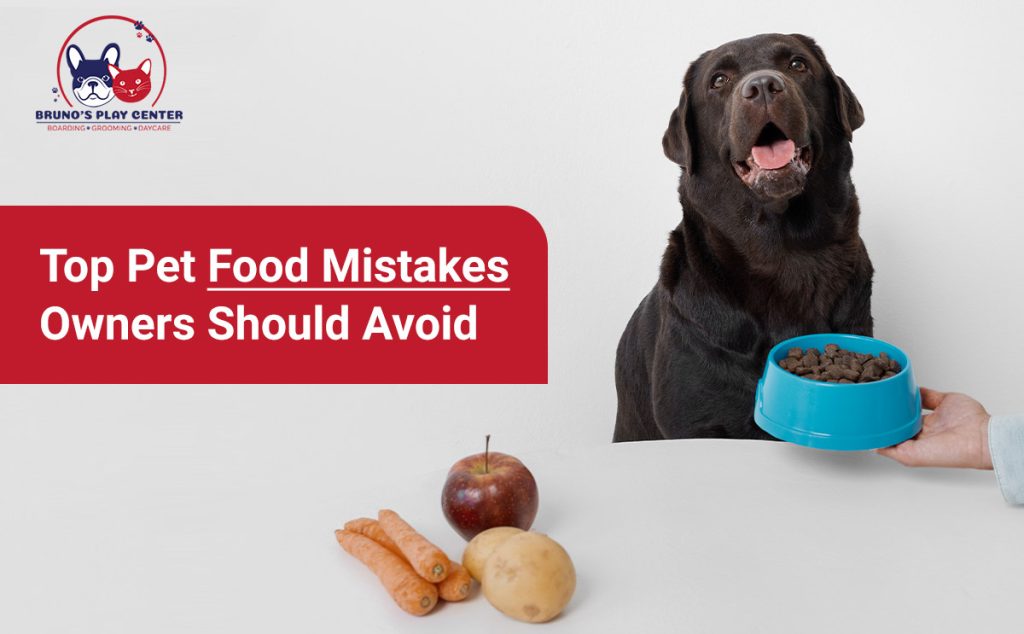When you bring a new member to your family – a baby or a puppy – it’s one of the most exciting times in your life. Just getting a new baby or puppy brings all the joy, but it also brings an investment in responsibility, and responsibility includes nutrition.
A puppy’s nutritional requirements should match those of a newborn’s. Food is absolutely necessary in this process, but one must also take into account a puppy’s appropriate development and growth. It includes the immune system and cognitive faculties as well as its long-lasting dedication to good health. Then what makes up a complete dog meal?
Let’s Read That!
1: Eat a balanced diet
The growth rate of dogs is rapid unlike human children, hence a dog needs an enormous amount of calories to build the growth output. Thus it would be essential to plan a balanced diet for dogs with appropriate portions of protein, lipid, carbohydrate, vitamins, and minerals.
Most of the prevention of developmental problems calls on a well-balanced diet. An uneven diet can also impede their growth, regardless of whether it is too little or somewhat too much, including typical health problems related to joint and stomach issues. So, developing a balanced diet for puppies helps them preserve peak health and avoids possible health problems.
2. Choosing the Right Puppy Food
When finding suitable nutrition for puppies in puppy food, whether online or in your local area, look for products specifically labeled as “puppy” or “growth .” In the UAE, there is no shortage of dog food in Dubai, including veterinary-recommended replacements and international premium brands. Check the ingredient lists: look for complete protein, minimal filler, and possibly DHA for optimal brain development in the puppy.
3. Portion Control & adjustment
Like babies, every pup is different. Feeding guidelines on the backs of every food package type can be a great tool. Before a puppy’s first birthday, the meals are cut to just two a day from three to four times a day for a pup of fewer than six months.
Meanwhile, it is best to keep track of the dog’s health so that any increases or decreases in weight can be observed and thus feeding size can be adjusted accordingly to keep the dog physically fit. Particularly if your dog is a huge breed, you should ask your veterinarian for additional suggestions on the amount of food.
4. Treats, Additions, and Items to Stay Clear
Using a treat as a reward is a great way to encourage behavior, but try to keep it below 10% of your puppy or dog’s total caloric intake. Some healthy options are a carrot stick, a piece of apple, or boiled plain chicken. Avoid the following meals: chocolate, grapes, onions, garlic, and xylitol—all of which are toxic to dogs. Regarding extra food, boiled chicken or plain rice can be used; however, it is best not to make this a frequent occurrence. For the safe side, avoid rich, fatty, or seasoned human food.
5. Monitoring Time For Poop Check
Firm, moist stools signal good digestion. Coat and Energy: A healthy puppy has a shiny coat and playful Behaviour. Growth Spurts: Puppies often require additional nutrition during their growth phase. You should adjust as needed. Vet Check-ins: Regular visits ensure vaccinations, preventatives, and growth progression are on track.
6. Local Resources in Dubai
If you’re in Dubai, Bruno’s Play Center is more than just a boarding and daycare facility. But it also expands on the topic of canine health. They also offer dog walking, grooming, boarding, and daycare.
Their long relationship with the franchise enables their small society to sincerely value and trust every aspect of what they do, from selecting dog food nutrition to providing fine meals. Your dog should experience improved health, increased energy, and greater joy as a result of this long-term benefit.
A balanced diet for your puppy ensures it will grow into a fit and happy dog if you plan its feeding regimen effectively. And support like Bruno’s Play Center, you’re laying down a solid base.
7. Never Forget About Water
A puppy’s regular schedule depends on water much like food. Puppies should have daily access to fresh, clean water. Dehydration can occur very rapidly in a hot environment like Dubai; therefore, having bowls doubled daily is very important.
If your puppy is demonstrating signs such as lethargy or dry gums, check to see if he is well-hydrated. Overall, don’t allow the puppy to drink excess amounts of water at all, especially between workouts, because increased drinking can cause larger dogs to bloat.
8. Making a Gradual Food Transition
The timing of dietary changes will increase as the dog grows, either from puppy to adult diets or owing to a particular medical issue. Contact your veterinarian to determine if it’s advisable to combine homemade food with commercial food. Should that be the case, mix a little fresh food with the old, then gradually increase the ratio of newly consumed food.
Any gastrointestinal trouble your dog suffers from, say, loose stools or watery diarrhea, vomiting, is enough for him to be given a six-hour respite and then a little reduction of the fresh food in his meals to try again. Since every dog will react differently, patience is critical in this process.
Final Verdict
In the end, we can say that creating a well-balanced diet plan for your puppy ensures healthy growth, builds strong immunity and overall well-being. You need to focus on high-quality proteins, essential nutrients and age-appropriate portions. So, it’s advisable to consult Bruno’s Play Center for your pet safety and tailor the diet to your puppy’s breed and its healthy needs.




